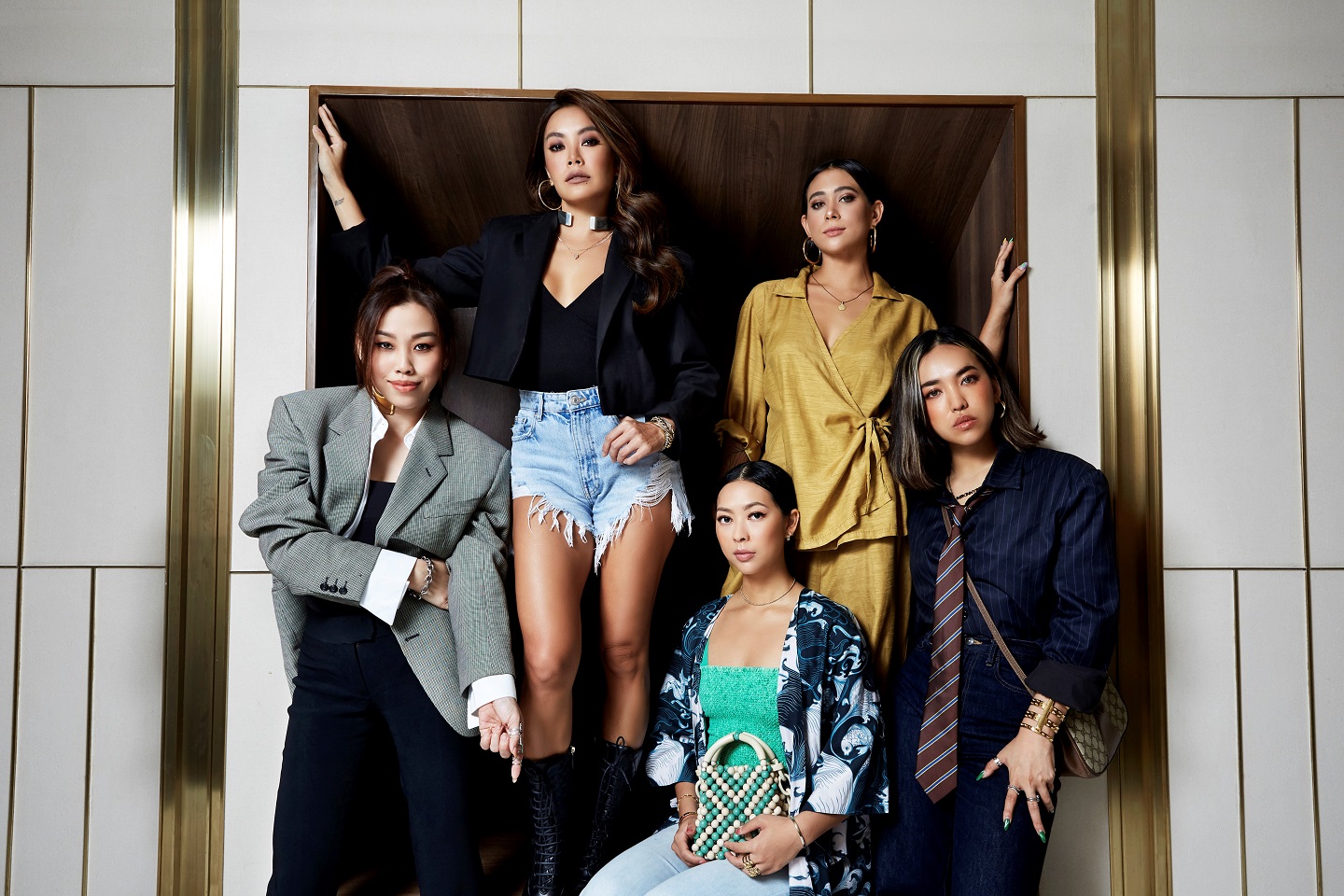
The ladies who proudly champion the #repeatoutfitoffender hashtag (Photo: SooPhye)
How can we keep our clothing from ending up in landfills? Buy better, thrift or simply get creative with what’s already hanging in our closets. There really is no shame in wearing a piece of clothing to death. Here, five bright young things show us the pieces they proudly wear time and time again — and with such verve too!
Bee Wong
33, founder of the Unskinny Studio
_s1a3461_1a.jpg
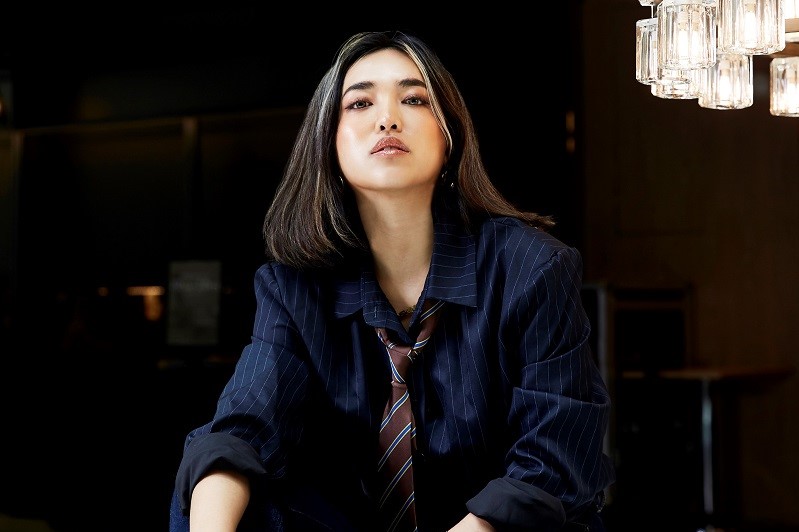
It is safe to say that as the founder of a creative agency, Bee Wong marches to the beat of her own distinctively dressed drummer. A fan of the art of thrifting, Wong recounts the sheer thrill of chancing upon an old Isetan department store worker’s uniform in downtown Kuala Lumpur sometime back. “It was so cool,” she says animatedly. “I am the total opposite of someone who loves buying new things and all I saw was how this dad-style jacket wasn’t just a cool look but had an equally cool story to tell.”
Describing herself as a “girl of many styles”, Wong doesn’t go for the in-your-face frilly and feminine aesthetic but prefers looks that embody attitude or have a distinct edge. “I favour muted hues too although you could often catch me colour-blocking or colour-layering my looks, like green on green on green,” she says. For today, her chosen #repeatoutfitoffender item is not so much clothing as a beloved accessory — a pre-loved Gucci handbag. “I found it in Shanghai, China, and it is my first branded bag, so it’s special. I always knew I wanted to own a nice bag, but I was also very aware it didn’t have to be brand new, even though my love for Gucci is huge. There are other ways to show your support for a house or a designer and buying pre-loved or vintage is one of them. There is nothing wrong with not buying new and I just wish many other young people see that it is, in fact, something to be proud of!”
0.jpg

Although she confesses to only using the bag occasionally, Wong says its quality workmanship and classic monogram design make it easy to match with most outfits. “Right now, I love this shirt-blazer look. I call it my ‘power look’ and my Gucci bag is perfect with which to accentuate that attitude.”
Wong also cites her 63-year-old mother as a fashion role model and conspirator in her love of sustainable style. “Mum loves clothes and has a great fashion sense. In fact, her dress sense is more amazing than mine. We both share wardrobes and are crazy about jackets and blazers, which we wear no matter how hot the weather gets,” she laughs. “I style her look sometimes, which is also a great way for us to bond.”
On what advice she would dispense to those wanting to adopt a greener way of dressing, Wong thinks for a minute before blurting out: “Hit the bundle shops! It has become such a popular Malaysian way to shop and there’s zero shame in it. In fact, it’s my favourite place to hunt for Levi’s jeans and Adidas items. Also, don’t go crazy buying too many cosmetics and products. I used to chase all the latest makeup palettes but realised it was not a healthy habit. I mean, there’s no way you can finish one in a year, let alone an entire collection. Makeup and cosmetics also have a shelf life so really, just buy what you need. Most of the bigger corporations — be it clothing or cosmetics — have already adopted more earth-friendly practices, but of course, more can always be done. What would really help is to develop more educational campaigns and be more transparent. Get videos out and tell stories about the better practices you have put in place. Inform consumers and let them decide whether to buy your products or not. Just stop with the greenwashing!”
Angie Lai-Tay
40, founder of Alt The Collection
_s1a3275_1a.jpg
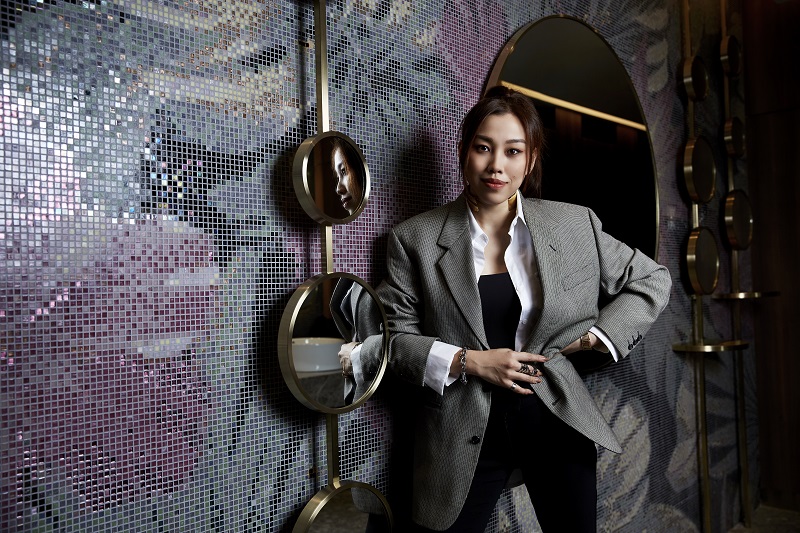
It shouldn’t come as a surprise that the founder of Alt (“Yeah, it’s an acronym of my initials … so creative,” laughs Angie Lai-Tay), a conscious jewellery brand that transforms spent bullet and bombshell casings from conflict in Indochinese territory into statement accessories, is as fierce about reducing waste output as she is about incorporating sustainability into style. “All our pieces are made in fair trade workshops in Cambodia and we ensure the artisans are fairly paid, ensuring a dignified livelihood.”
The happy result of a hobby and pet project that turned into a passion, Lai-Tay says every piece of jewellery created is something she would proudly wear herself. “The premise is essentially upcycling, of turning something negative — a byproduct of war and conflict — into something positive. Likewise, repeating and recycling the clothes we wear.”
A champion of the #repeatoutfitoffender hashtag, Lai-Tay snorts at the idea that something has to be new and expensively priced in order to be deemed chic and stylish. “I don’t buy anything if I can’t see myself wearing it at least 30 times. This oversized jacket, for example, belonged to my father who got it in his mid-40s. I remember coming across it while helping him declutter and seeing its potential. I adore oversized clothing in general and love how this particular jacket reminds me of him when he was young and in his prime. I recall him travelling a lot to Hong Kong and Vietnam in this piece. So when I put this on, I want to evoke that same energy. I also want my kids to remember seeing me in this, so I keep telling them, ‘This was kong kong’s, you know’,” says the mother to Olivia, 14, and Elliot, 9. “A piece of clothing is also easier to incorporate into your daily look than, say, a precious watch or expensive piece of jewellery. So, hopefully, the third generation will share this jacket between them when they grow up, although, looking at how tall Elliot is getting, it may not be possible,” she chuckles.
On her advice for clothing companies, she is frank and to the point: Invest in the quality of your workmanship, pay your people decently, create with longevity in mind and use quality fabric. “It’s a cliche but I really do want to make the planet a better place for my kids. I have stopped chasing trends and avoid fast fashion at all costs. I was guilty of indulging before, therefore I also know firsthand just how poorly made they are.
“Change really does start with ourselves and don’t make excuses for old clothing — repurpose them, recycle them. If not, we will just end up living in a landfill,” she adds. “There was a phrase I came across on how worn clothing represents traces of lives lived and is alive with all it has witnessed and how it evokes deep feelings while telling real-life tales. To me, that’s beautiful. I wish more people could see their existing clothes this way. Wear them often and make memories to treasure in them. That’s a good way of giving a long life to things.”
Aisha Hassan
28, co-founder of Dia Guild
_s1a3428_1a.jpg
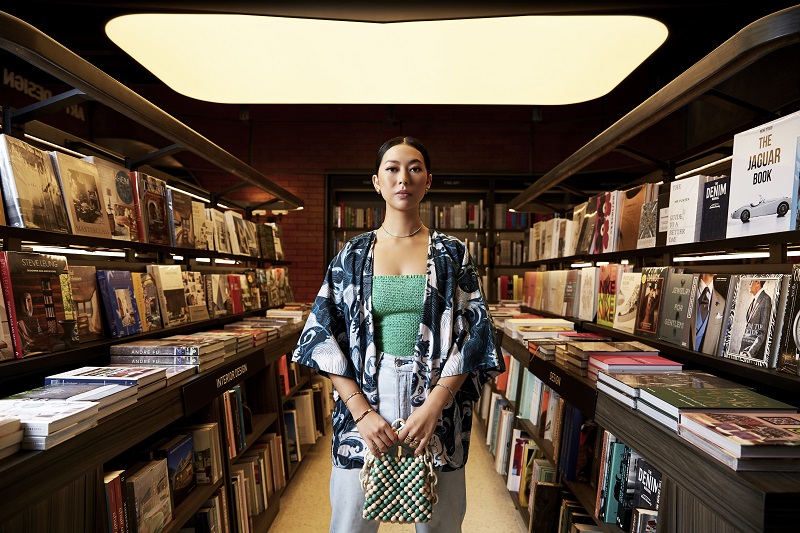
Rocking a hand-drawn kimono by Filipina artist and illustrator Feanne, a much-loved Alice + Olivia top bought in Bangkok, jewellery from Olena, a Malaysian demi-fine jewellery brand handcrafted in Thailand, all paired with a funky handmade wooden bead bag from Moy Studio, a handmade accessories brand that uses sustainable, natural materials indigenous to Cebu, an island in the Philippines, Aisha Hassan could be called the poster girl for ethical, stylish, small batch Asean fashion. “Feanne is one of our artisans in Dia Guild and it was her design of a betta fish and hibiscus that really drew me,” she says. “I love how Feanne’s pieces all sport her original artwork, are made from breathable cotton and, as an added bonus, also reversible.”
For those unfamiliar with Dia Guild, which Aisha set up in 2020 with two friends, it is, in their own words, “a love letter to Southeast Asia”. Founded with the express purpose of changing the region’s unfairly earned reputation as a source of cheap, mass-produced goods, the e-commerce platform prides itself on working exclusively with regional talents who produce outstanding designs and luxury items on a solid foundation of ethics and artistry.
On how the consumer can help champion the sustainable fashion cause, Aisha muses how it all boils down to education. “Even at Dia Guild, we face a lot of consumer bias,” she sighs. “This is an especially Asian issue, so we really work hard to convey the workmanship and time spent creating each piece and what value actually means. We want people to know it doesn’t have to be about the label or price tag but rather who the artist is and the values embodied in every work of art they create. Ultimately, it’s about cultural capital and we want to support small businesses that can add this independent value. Conveying the message is not easy but it does help move the needle a little bit.”
dia_guild.jpg

Although she admits to owning (and using) items from luxury labels — “treasured gifts from loved ones” — Aisha shares how her style epiphany really occurred after starting Dia Guild. “After speaking to the artisans who are, by and large, already marginalised, you feel their passion and emotion and you cannot help but be moved. Thereafter, all it takes in buying better and supporting businesses with values and ethics, is simply the will to make a conscious choice.”
Her own passion for well-made items with regional flair has rubbed off on her tribe. “I am proud to say I have converted a lot of family and friends into Dia Guild lovers. Mum, I have to add, is Dia’s biggest fan. I also personally have not purchased a single fast fashion item in years, and working with Dia Guild has made me even more thoughtful about whatever I buy next. I know fashion is a big industry, with so many livelihoods at stake. But corporations also need to stop greenwashing and be more transparent. Take a good, hard look at every step of their value chain, from seamstresses to logistics and beyond. Ask yourself if your workers are truly compensated and you are mindful of the use of resources. It really is all about doing whatever you can with whatever you have, wherever you are. That’s all it takes to shift from convenience to consciousness!”
Makissa Smeeton
29, co-founder of The Hungry Tapir
_s1a3373_1a.jpg
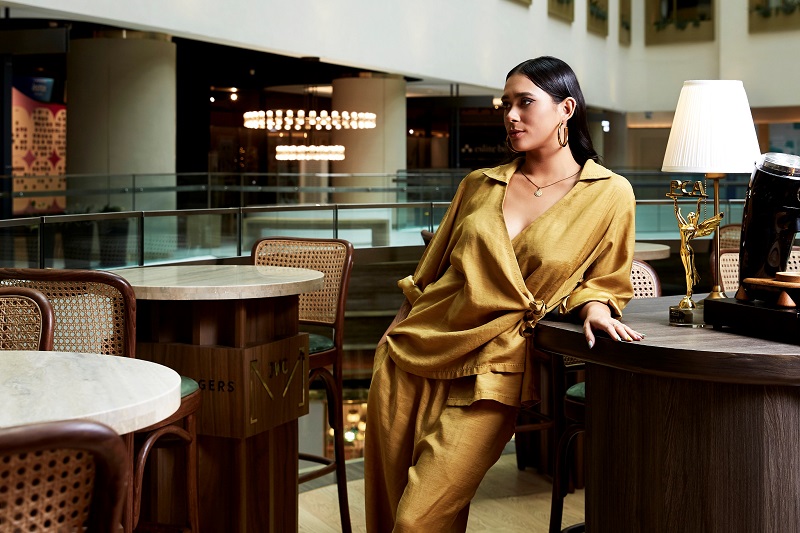
Young she may be but a seasoned F&B player Makissa Smeeton already is. As co-owner of The Hungry Tapir, a proudly plant-based restaurant she founded in Kuala Lumpur’s hip Chinatown district with her mother Cynthia Rodrigo and brother Tristan, Smeeton has been living the green life for almost a decade now. “I have been vegan at least eight years now and I only wear thrifted, vintage or fully recyclable clothing. I do not support fast fashion at all, and to be very honest, the only new things I buy are underwear,” she cheekily volunteers.
Being part of a small family-run business herself, Smeeton finds supporting other boutique enterprises in line with her ethos and way of life. “I support local as much as I possibly can, even though this favourite pantsuit of mine was purchased from Goodwill Miami in the US one New Year’s Eve,” she says, referring to the 121-year-old nonprofit organisation whose proceeds also go towards supporting community programmes. “I paid only one dollar for this whole outfit and have made the most wonderful memories in it. I immediately wore it out for the countdown celebrations, starting from South Beach all the way to a Cuban family’s rooftop party, which was wild, and finally to Club Space, a big nightspot in downtown Miami. I have also worn this outfit to two weddings and a baby shower, spent the whole of last summer in Portugal in it and then on the flight back to London. It’s not only giving new life to an old look but this pantsuit is also just so comfortable.
“I like to remind myself to look for beauty in things someone once loved,” she continues. “Thrifted and vintage pieces are just more unique and fascinating. If ever you are in London next, please check out Brick Lane Market and Dalston, where there are heaps of thrift and vintage stores. And don’t forget to try bargaining. I remember coveting a vintage 1950s clutch marked £50. I had a good chat with the storekeeper and eventually got it for £20. I wore it to an event in Lake Como, Italy and it looked so bougie next to all the designer handbags on parade.
“I know I can’t change the world by buying pre-loved clothes as a single person but we must do our part in helping reduce waste. A lot of credit goes to my mum, who has definitely been a positive influence. Ultimately, part of the dressing-up process contributes to how it makes you feel and I want to feel wholesome and true to my beliefs. That is priceless to me.”
Although Smeeton acknowledges that going vegan is not for everybody, she says small acts, like adopting Meatless Mondays as part of one’s weekly diet, also go a long way in helping the planet. “Becoming vegetarian or vegan is a personal choice but even small things eventually add up. Another obvious move is to really stop single-use plastics and avoid buying items you suspect have sweatshops in their supply chain equation. There are no ethics there, not to mention a disgusting gap in wages. Once you understand that, you will support the better, more responsible brands out there!”
Ung Yiu Lin
43, entrepreneur
_s1a3585_1a.jpg

It is the cause of much teasing from her coterie but It Girl Ung Yiu Lin’s famous denim shorts have made the fashion news as much as she has. “These are undoubtedly my favourite denim shorts which everyone has seen me in at least a thousand times to date,” she laughs. “Paired, of course, with my combat boots which would last my lifetime. I’ve had them for over seven years. It took a break when I was pregnant with Ava, my second daughter, but I have the best memories wearing them.”
A quick glance through the stylish mum-of-three’s popular Instagram account shows the humble pair of shorts in the most amazing settings and, naturally, worn to great effect. “The shorts also followed me on my first trip to Morocco sans kids. I remember the occasion distinctly as it was the first time my husband Azlan and I travelled as a couple since becoming parents. I have pictures of me wearing the shorts strolling through the olive groves of Dar Ahlam, traversing the many alleyways of Marrakech’s souks and on subsequent trips to Cuba, the Bahamas, Mexico and more … These frayed denims have definitely travelled! I also can’t stress enough the benefits of finding pieces of clothing versatile enough to take you from day to night and to dress up or down. If you are a frequent flyer, it makes packing a whole lot easier!”
The multi-hyphenate entrepreneur nonetheless adopts a sensible and practical approach. “Sustainable style doesn’t mean you can’t shop fast fashion,” she says. “My denim shorts, for example, were bought from Zara. It just means you have to consciously purchase items you know you will wear repeatedly. At the other end of the spectrum, I do invest in key pieces from good brands — staple pieces that are well made and transcend seasons and trends. I also believe thrifting and vintage shopping should be encouraged.”
A conscious consumer herself, Ung is an advocate of recycling clothing and the rental concept. “The move by stores offering monetary rewards or discounts for future purchases when you recycle old clothes is definitely something that needs to be championed. I also love the idea of boutiques where you can rent an outfit or accessory. Sometimes, you really do need something for a single occasion, so why pay or invest so much to buy it outright? Just rent it!”
On addressing the still-prevalent snobbery when it comes to augmenting one’s wardrobe, particularly in swanky social circles, Ung has this to say: “I have never really cared much about what people say you should or shouldn’t do ... or wear,” she states firmly. “People are more expressive now and use fashion as a way to show their individuality. Also, if you love something, why not wear it again and again? It’s no longer a fashion faux pas to recycle one’s looks, but yes, it takes a gentler, kinder society to not pass criticism and judgement. Individuals, likewise, need to be more confident so as not to pay heed to such comments.”
This article first appeared on Apr 10, 2023 in The Edge Malaysia.


